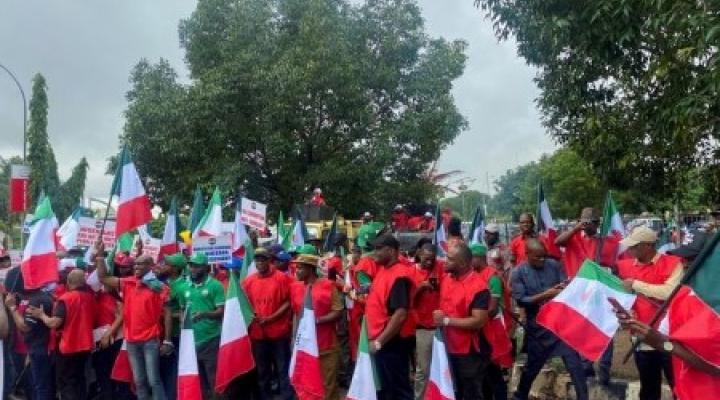
Nigerian public hospital frontline doctors have concluded a three-week strike on Friday, which aimed to emphasize the need for a salary increase following the elimination of a petrol subsidy, according to the doctors’ union.
The National Association of Resident Doctors (NARD) declared that the resolution to conclude the strike came after a highly productive meeting with legislators, headed by Senate President Godswill Akpabio, held in the capital city of Abuja.
“From our interaction with the President of the Senate and the practical demonstration he did before us today, we are very confident that there will be light at the end of the tunnel,” NARD president Orji Emeka Innocent told reporters.
Following President Bola Tinubu’s choice to eliminate the widely used yet costly fuel subsidy at the end of May, which led to a more than threefold surge in fuel prices and subsequent transport fare hikes, the doctors became the initial group of public sector employees to engage in a strike.
Medical school graduates undergoing specialized training, known as resident doctors, play a vital role in Nigeria’s frontline healthcare, particularly in emergency wards across its hospitals.
Akpabio commended the doctors for their “decision not only to cancel the planned public protest, but to also call off the strike in the interest of the suffering masses.”
Tinubu, who has initiated some of Nigeria’s most ambitious reforms in years, has faced unions’ demands for assistance to households and small enterprises. This comes after he abolished the subsidy that maintained low petrol prices but incurred a $10 billion expense for the government last year.
Taking office in May after contested February elections, the president is yet to form a complete team of ministers. However, on August 7, legislators endorsed 45 cabinet nominees, clearing the path for their official appointment as government ministers.
